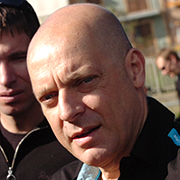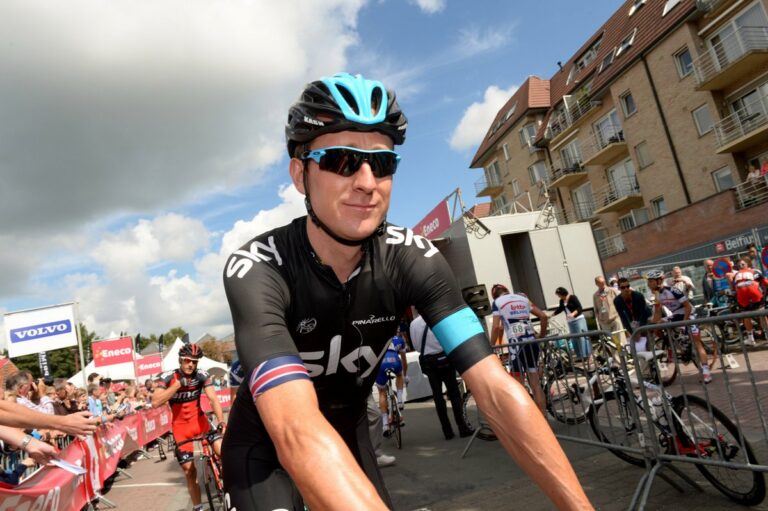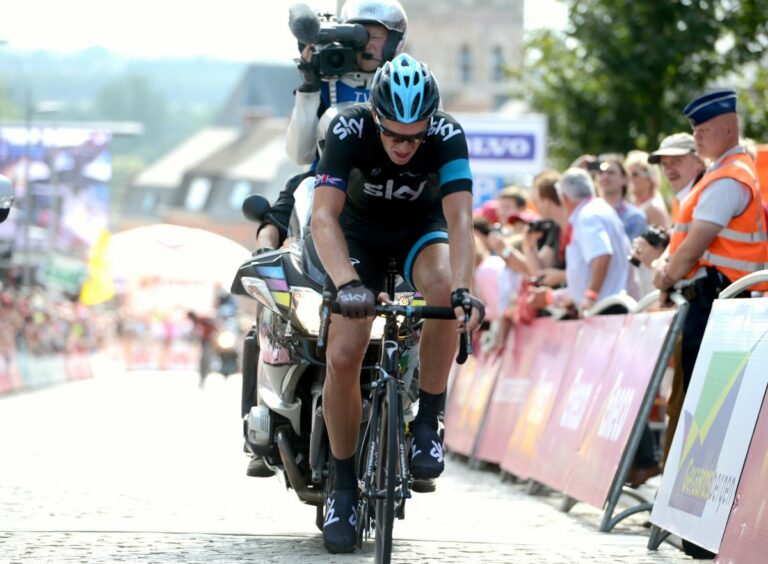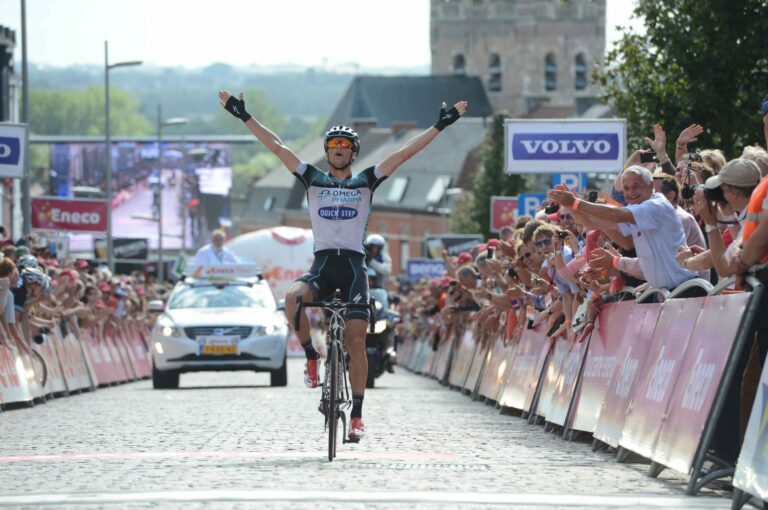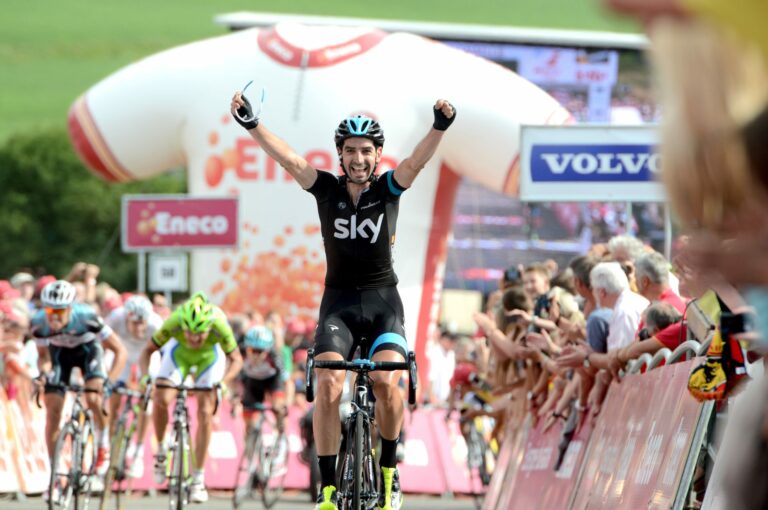In the same year the man acknowledged as one of British sport’s all-time leading coaches retired, another coaching legend was adding cycling’s greatest prize to his palmares for the second time.
While Sir Alex Ferguson has called an end to a phenomenal 37-year football management career, Sir Dave Brailsford continues to underline his position as one of cycling’s greatest coaches.

Twice a winner of the BBC Sports Personality of the Year Coach Award, Sir Dave has delivered an unprecedented level of success for British Cycling and, more recently, Team Sky.
Involved with British Cycling as an adviser since Lottery funding began in 1996, Brailsford has delivered gold medals galore since being appointed Performance Director in 2002.
He has led Britain’s cyclists to 105* World Championship medals, 50* of which are gold, 30 Olympics medals and 49 at the Paralympics, including the incredible success at Beijing 2008 and London 2012.
Since Team Sky was founded in 2010, Brailsford also managed Sir Bradley Wiggins to his Tour de France victory last year – becoming the first British winner – and then followed it with Chris Froome’s success this month.
But where does the 49-year-old stand compared to the other greats of British coaching?
*David Millar later stripped of 2003 World Time Trial gold medal
Sir Alex Ferguson (Football)
Loved by his club’s supporters, and despised by their rivals, but not even the most passionate opposition fans can deny Ferguson his place in the sporting elite.
Since taking over at Scottish part-timers East Stirlingshire in 1976, Ferguson has gone on to win 16 top-flight titles in England and Scotland, 14 major domestic cups and two European Cups alongside a host of other trophies.
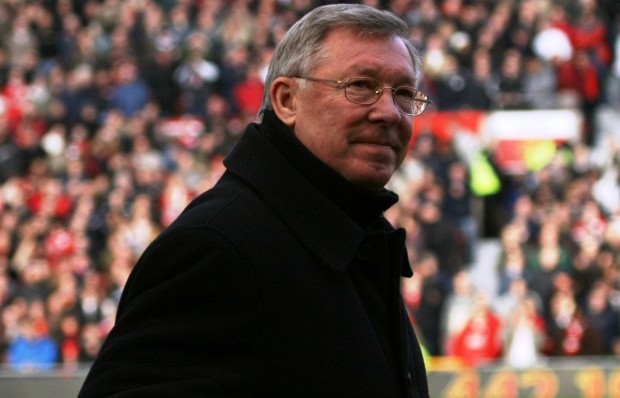
While he will be remembered for his success at Manchester United, which saw him win 13 Premier League titles in the 21 seasons of its existence, he also achieved major success north of the border with Aberdeen.
The last man to win the Scottish title with a club other than Celtic or Rangers, he also guided the Dons to continental glory when they won the European Cup Winners’ Cup and the Super Cup in 1983.
A three-time winner of the Onze d’Or, the most prestigious coaching award in world football, Ferguson was knighted in 1999 and led United to Club World Cup success in 2008 before retiring this summer after winning the Premier League and bringing United their twentieth league title.
Brian Noble (Rugby League)
Although less decorated than the other coaches in this list, ‘Nobby’ is one of the most celebrated coaches in rugby league.
Taking over a Bradford Bulls team in 2001 which had reached three consecutive Grand Finals and lost them all, the club embarked on a hugely successful era with Noble at the helm.
In his first season in charge, the club topped the Super League table and won the Grand Final, before going on to win the World Club Championship in 2002.
‘Nobby’ remains the only man to have led a team to three Super League titles
In 2003, Bradford Bulls topped the league, won the Grand Final and won the Challenge Cup to become the first team ever to win the treble before once again becoming World Champions the following year – a feat they repeated in 2006.
Under Noble, Bradford won a phenomenal 81 per cent of their matches and after their third Grand Final win in 2005, Nobby remains the only man to have led a team to three Super League titles.
Since leaving the Bulls, Noble’s success has been more limited but after keeping Wigan Warriors in the league in 2006 he led them to consecutive play-off semi-finals in the next three years.
He also guided Crusaders to the play-offs for the first and only time in 2010 and is now in charge at Salford City Reds.
Sir Clive Woodward (Rugby Union)
Woodward sealed his place in British sporting legend when he guided England to the 2003 World Cup, their first and to-date only success in the competition.
The foundations for their famous victory in Melbourne were laid many years before however, after the former London Irish coach’s appointment in 1997.
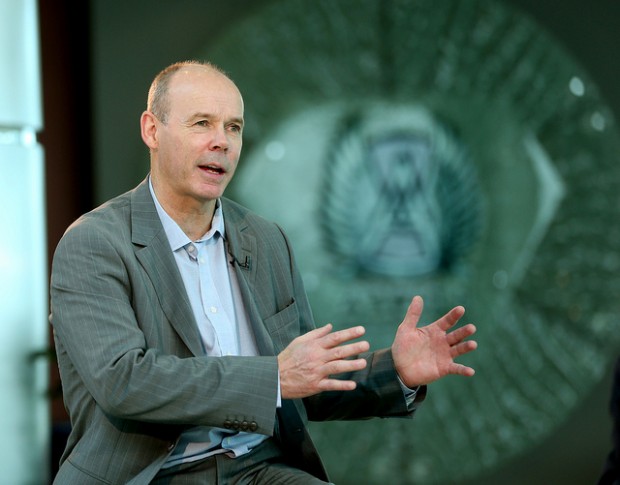
Having finished second in their first two Five Nations competitions under Woodward’s rule, England reached the quarter-finals of the 1999 World Cup before winning the inaugural Six Nations the following year.
They repeated this feat in 2001, before sealing a prestigious Grand Slam in 2003 just months before their World Cup victory.
Woodward was knighted for his achievements, but saw his star fade after a disappointing Lions Tour in 2005 and an unsuccessful venture as Director of Football at Southampton.
However, he returned the following year as Director of Sport at the British Olympic Authority (BOA), leading Great Britain to enormous success at the 2008 and 2012 Olympic Games before stepping down after last summer.
Sir David Tanner (Rowing)
Like Brailsford, Tanner has been at the heart of Olympic success after a hugely successful 22 years with British Rowing.
Appointed to the part-time role of Senior Team Manager from 1991-1996, Tanner – alongside famed rowing coach Jurgen Grobler – led Britain to three gold medals from the 1992 and 1996 Games.
Matthew Pinsent and Steve Redgrave’s victory in Atlanta in the latter was Britain’s only gold medal success in a hugely disappointing Games before Lottery funding was established.
Britain’s only gold medal success in a hugely disappointing Olympic Games
Since 1996, Tanner has been British Rowing Performance Director – making him Brailsford’s current opposite number – as Great Britain have risen to the fore of world rowing.
In 2000, he led them to two gold medals and one silver – including Redgrave’s famous fifth victory – and has gone on to guide Britain to seven more golds, six silvers and six bronze medals.
At London 2012, the rowers’ medal haul was second only to the cyclists, while Britain have now won the coxless fours race at four successive Games.
Tanner was knighted this year for his role in Britain’s success, which has also included masses of medals from World Championships and international regattas.
Sir Frank Williams (Formula One)
The Tyneside-born founder and team principle of the Williams F1 team has been involved in Formula One since buying his first F1 chassis for the 1969 season.
Since that year, when Britain’s Piers Courage led Frank Williams Racing Cars to two second-place finishes, Williams has produced seven Formula One champions and won the Constructors’ Championship on nine occasions.
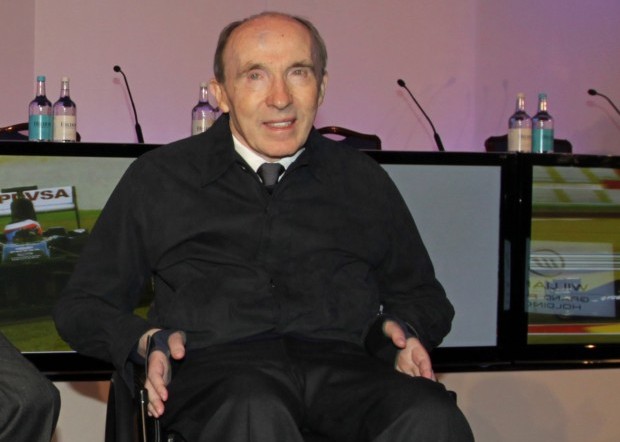
Since its foundation in 1977 as Williams Grand Prix Engineering, the team have raced 601 times, achieving 127 pole positions, 131 fastest laps and 114 wins.
Williams has produced two British world champions in Nigel Mansell and Damon Hill, and was knighted in 1999.
Williams’ golden age came in the 1990s, with Mansell and Hill’s success complimented by Alain Prost’s championship in 1993 and Jacques Villeneuve’s in 1997.
While the same decade brought tragedy with the death of Ayrton Senna at Imola in 1994, while at the wheel of a Williams, Sir Frank overcame the tragedy and remains a leading figure in the sport.
His achievements, despite being wheelchair-bound since 1986, saw him awarded the Wheatcroft trophy in 2008.
Although success has been limited in recent years, Pastor Maldonado’s victory at the Spanish Grand Prix last year proved the team, with Williams still in charge, can still produce results.

